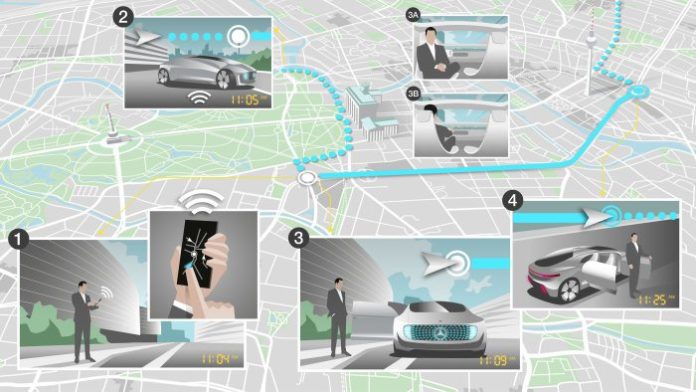The demo took place at the Mercedes-Benz Museum parking garage in Stuttgart
German companies Bosch and Daimler have carried out a demonstration of driverless parking at the Mercedes-Benz Museum parking garage in Stuttgart, Germany.
The two companies said that the pilot solution is the world’s first-ever infrastructure-based solution for a fully automated valet parking service in real conditions.
“Autonomous driving will be with us faster than many realize. Driverless parking at the museum impressively demonstrates how advanced the technology already is,” said Michael Hafner, head of automated driving and active safety development at Mercedes-Benz Cars. “The use of intelligent parking garage infrastructure and its connectivity with vehicles has allowed us to make driverless parking a reality much earlier than expected,” said Gerhard Steiger, president of Bosch’s chassis systems control division.
This driverless parking is made possible by the interaction between intelligent parking garage infrastructure supplied by Bosch and Mercedes-Benz automotive technology. The sensors installed in the parking garage monitor the driving corridor and its surroundings while guiding the vehicle.
The sensors for the parking garage infrastructure and the communications technology come from Bosch. Daimler is providing the privately owned museum parking garage and pilot vehicles.
Bosch unveils new environmental sensor for IoT applications
In related news, Bosch has announced the commercial availability of its new environmental sensor.
The BME680 sensor provides accurate measurement of indoor air quality, barometric pressure, relative humidity and ambient air temperature.
With all four sensors housed in a single package, the BME680 is specifically designed to provide the detailed real-world data outputs required for smart homes, smart offices and buildings, smart energy, smart transportation, HVAC, elderly care and sport/fitness applications. It is also well-suited to mobile and stationary applications such as indoor air quality measurement, personal weather stations, indoor navigation and fitness monitoring, the German firm said.
“Building on Bosch’s decades of experience, the strong customer response to the BME680 has confirmed its value, already winning multiple OEM design-ins in several mobile and IoT applications,” said Stefan Finkbeiner, CEO of Bosch Sensortec. “In response to this success, we feel that it is high time for this IoT-ready and versatile product to go mainstream through the distribution channel.”

